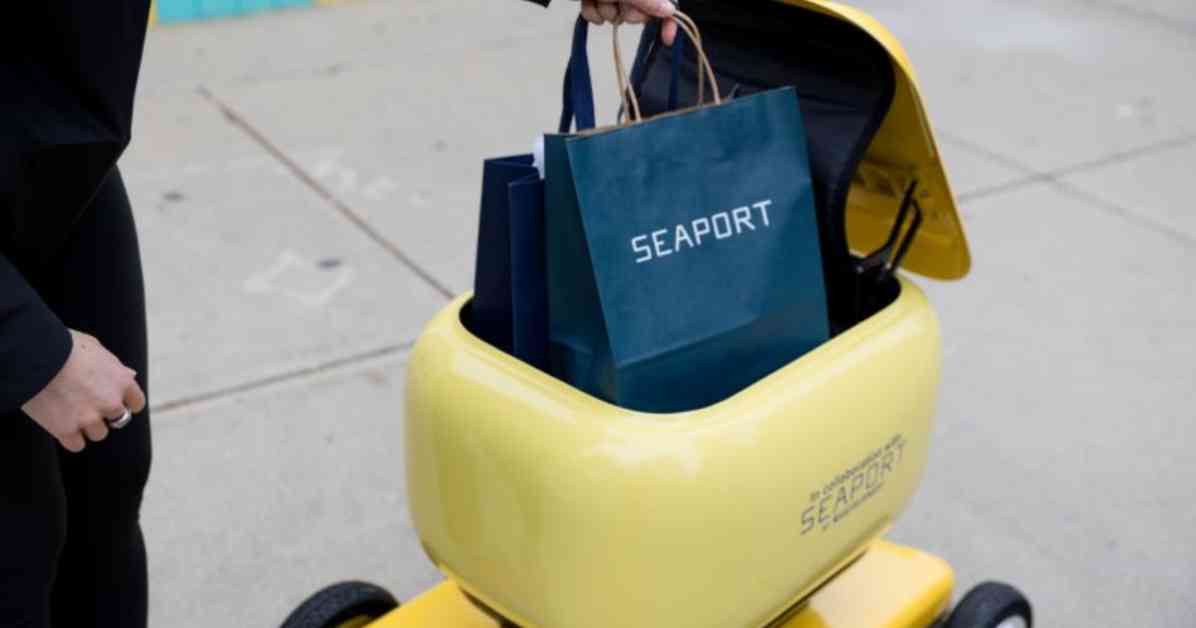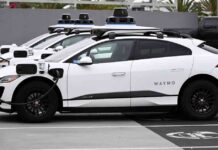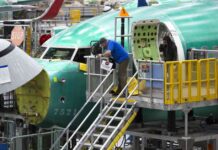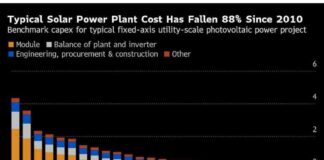A British robotics company, Peyk, has recently launched robot delivery services in Boston’s Seaport District, marking a significant milestone in the realm of autonomous technology. Partnering with developer WS Development, Peyk deployed its Peykbot autonomous robots to conduct deliveries within a 5-mile radius across various retail outlets in the Seaport area. This innovative initiative aimed to test the efficiency and practicality of robot deliveries in a bustling urban setting, showcasing the potential for automated systems to revolutionize the logistics industry.
Peyk’s foray into the U.S. market with its robot delivery service in Boston represents a strategic move to tap into the growing demand for autonomous solutions in the delivery sector. The company’s founder and CEO, Salman Moghimi, expressed his excitement about the opportunity to trial their robots in a forward-thinking and sustainable district like Seaport. Emphasizing the role of robots in shaping the future of delivery services, Moghimi highlighted the significance of operating in a location that aligns with the vision of leveraging technology for efficient and environmentally friendly transportation solutions.
With Peyk’s successful completion of numerous deliveries in the Seaport District over the course of a month, the company demonstrated the capabilities of its Peykbot robots to navigate urban environments and deliver goods to various destinations. This milestone not only showcased the reliability and effectiveness of autonomous delivery systems but also positioned Boston as a prime market for robotics and autonomous technologies. Peyk’s entry into the U.S. market heralds a new era of innovation in the delivery industry, with the potential to transform the way goods are transported and distributed in urban areas.
As part of its strategic expansion into the U.S., Peyk joined MassRobotics in June, a move that provided the company with valuable resources and opportunities to establish its presence in the American market. By leveraging MassRobotics’ expertise and network, Peyk was able to connect with key stakeholders, participate in robotic-focused events, and access state-of-the-art facilities for testing and development. This collaboration underscored the importance of partnerships and industry alliances in driving innovation and accelerating the adoption of autonomous technologies in real-world applications.
Peyk’s commitment to leveraging robotics for sustainable and efficient delivery solutions aligns with the broader trend of integrating automation and artificial intelligence into various industries. The deployment of Peykbot robots in Boston’s Seaport District not only showcased the technical capabilities of autonomous systems but also highlighted the potential benefits in terms of reducing traffic congestion, optimizing delivery routes, and enhancing overall efficiency. By operating 24/7, the delivery robots have the capacity to streamline logistics operations, minimize the reliance on traditional vehicles, and improve the overall delivery experience for businesses and consumers alike.
Challenges and Opportunities in Robot Deliveries
While the introduction of robot deliveries in Boston’s Seaport District represents a significant step towards a more automated and efficient delivery ecosystem, it also raises important questions about the impact of autonomous technologies on the workforce and urban infrastructure. As companies like Peyk continue to expand their robot delivery services, there is a need to address concerns related to job displacement, regulatory frameworks, and safety measures to ensure the responsible integration of robots into daily operations.
One of the key challenges facing the widespread adoption of robot deliveries is the potential displacement of human workers in the delivery and logistics sector. As automation technologies become more prevalent, there is a growing apprehension about the implications for employment opportunities and the overall workforce. Companies deploying robot delivery services must consider the social and economic implications of transitioning to automated systems and explore ways to mitigate any adverse effects on workers who may be impacted by these technological advancements.
Additionally, the regulatory landscape surrounding autonomous technologies presents a complex and evolving set of challenges for companies operating in this space. Ensuring compliance with local laws and regulations, addressing liability issues, and establishing safety standards for autonomous vehicles are critical aspects that require careful consideration. By working closely with regulatory authorities and industry stakeholders, companies like Peyk can navigate the regulatory environment effectively and demonstrate their commitment to responsible and ethical deployment of robot delivery services.
Despite these challenges, the rise of robot deliveries also presents significant opportunities for businesses to streamline their operations, reduce costs, and enhance customer satisfaction. By leveraging autonomous technologies, companies can improve delivery speed and accuracy, optimize route planning, and minimize environmental impact through more efficient use of resources. The integration of robots into the delivery process can also create new job opportunities in areas such as robot maintenance, fleet management, and technical support, fostering innovation and growth in the emerging field of autonomous logistics.
The Future of Robot Deliveries
Looking ahead, the future of robot deliveries holds immense promise for transforming the way goods are transported and distributed in urban environments. As companies like Peyk continue to innovate and expand their robot delivery services, we can expect to see a proliferation of autonomous vehicles on the streets, sidewalks, and pathways of cities around the world. These robots will not only revolutionize the logistics industry but also pave the way for a more sustainable, efficient, and interconnected delivery ecosystem.
The integration of artificial intelligence, machine learning, and sensor technologies into robot deliveries will enable these autonomous systems to navigate complex urban environments, interact with pedestrians, and adapt to changing conditions in real-time. By harnessing the power of data analytics and predictive algorithms, companies can optimize delivery routes, anticipate traffic patterns, and enhance operational efficiency to meet the growing demand for fast, reliable, and environmentally friendly delivery services.
Moreover, the evolution of robot deliveries will likely lead to new business models, partnerships, and collaborations that leverage the capabilities of autonomous technologies to create value for customers and stakeholders. From last-mile delivery solutions to on-demand services and subscription-based models, the possibilities for innovation in the delivery sector are virtually limitless. By embracing the potential of robot deliveries and embracing a culture of continuous learning and adaptation, companies can stay ahead of the curve and capitalize on the opportunities presented by the rise of autonomous technologies.
In conclusion, the testing of robot deliveries in Boston’s Seaport District represents a game-changing innovation that heralds a new era of autonomous logistics and transportation. By leveraging the capabilities of Peykbot robots and collaborating with industry partners like WS Development and MassRobotics, Peyk has demonstrated the potential for robots to revolutionize the delivery industry and reshape the future of urban mobility. As companies continue to invest in autonomous technologies and explore new avenues for growth and expansion, the possibilities for innovation and transformation in the delivery sector are truly limitless.






















